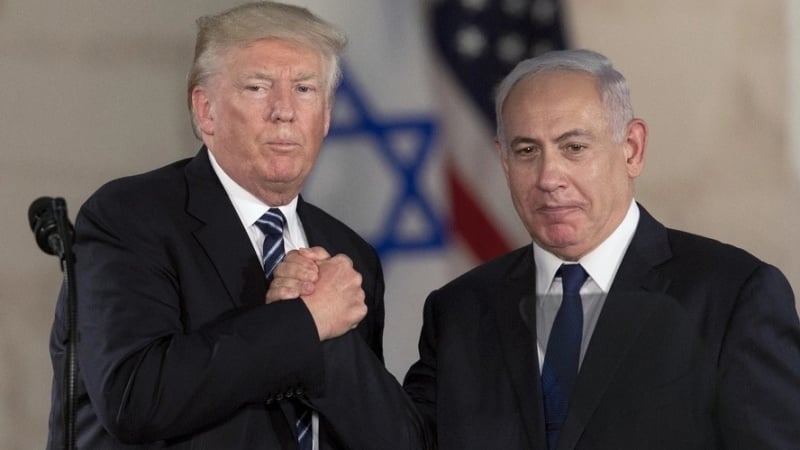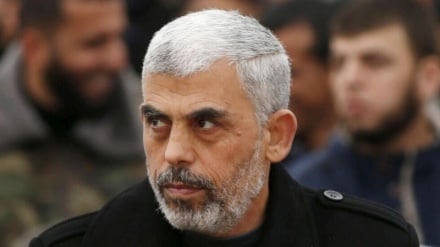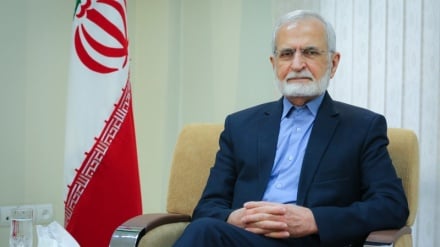Could Israel have attacked Qatar without U.S. involvement?
-

Could Israel have attacked Qatar without U.S. involvement?
Pars Today – The White House’s claim that Benjamin Netanyahu ordered the attack on Qatar without coordination with Washington has been met with deep skepticism. Given the longstanding military and intelligence ties between the United States and Israel, the assertion not only raises serious doubts but also fundamental questions about Israel’s ability to independently carry out such sensitive operations on the soil of key American allies.
The U.S. government’s claim that Israeli prime minister Benjamin Netanyahu independently decided to carry out the attack on Qatar has raised numerous questions about the nature of the military and intelligence relationship between the United States and Israel. Given the long history of close cooperation between the U.S. and Israel, this claim requires careful scrutiny. Is Israel truly capable of conducting such a sensitive operation in a country like Qatar—a key U.S. ally in the region—without coordination or prior notification to Washington?
According to Pars Today, the military and intelligence relationship between the United States and Israel is one of the deepest and most complex bilateral partnerships in the world. For decades, Israel has been recognized as one of Washington’s closest allies in West Asia, a relationship supported by extensive financial, military, and intelligence assistance. The United States provides Israel with billions of dollars in annual military aid and has equipped the regime with some of the most advanced weaponry, including F-35 fighter jets and missile defense systems.
In addition, intelligence cooperation between agencies such as Mossad and the CIA, as well as information sharing through military intelligence units (like Aman in Israel), has reached an unprecedented level. This cooperation includes satellite data sharing, real-time intelligence, and cyber operations, all of which are essential for carrying out complex attacks such as the one in Doha.
The Israeli strike on Qatar, reportedly aimed at targeting Hamas leaders in Doha, was an operation with significant logistical and political complexities. Qatar, which hosts the Al Udeid military base—one of the largest U.S. military bases in the region—plays a key role in U.S. military operations in West Asia.
Carrying out such an attack on the territory of a close U.S. ally without coordination with Washington carries enormous political and military risks, including the possibility of a military response from Qatar or an escalation of regional tensions. Qatar’s Foreign Minister, Sheikh Mohammed bin Abdulrahman Al Thani, stated after the Israeli military strike on the country that the U.S. informed Doha only 10 minutes after the attack. He also rejected the White House’s claim that Qatar had been notified prior to the Israeli operation.
From an operational perspective, carrying out an attack of this scale requires intelligence and logistical support that is usually provided through coordination with the United States. According to sources, Israel has relied on satellite data, drones, and cyber operations for similar strikes—most of which have been made possible in collaboration with Washington.
Regarding the attack on Qatar, the Israeli newspaper Maariv revealed that the operation had been planned weeks in advance by Shabak, highlighting a high level of preparedness and coordination. It seems highly implausible that such extensive planning—especially on the soil of a key U.S. ally—could have been conducted without informing the United States.
On the other hand, statements by U.S. President Donald Trump, who described Israel’s attack on Doha as Netanyahu’s personal decision and expressed regret, are part of Washington’s political strategy to reduce international pressure. These remarks came while some sources, including CNN, reported that Israel’s military operation in the region was carried out with implicit U.S. support. This implicit backing could include providing intelligence, refraining from obstructing the operation, or even indirect coordination. Historical precedent also indicates that Israel has not carried out an operation of this magnitude without coordination with the United States.
Moreover, international reactions to the attack on Qatar—including strong condemnation from the United Nations and other countries—have added further political pressure on Washington.
This pressure may explain the White House’s attempts to deny direct involvement in Israel’s attack on Qatar. However, the deep military and intelligence coordination between the United States and Israel, coupled with the U.S. military presence in Qatar, makes the claim that Israel acted alone appear unrealistic. Even if official notification was not provided, it is unlikely that U.S. intelligence agencies were unaware of the planning of such an operation.
In any case, considering the extensive military and intelligence cooperation between the U.S. and Israel, as well as Qatar’s strategic position as a U.S. ally, Israel did not attack Doha without Washington’s knowledge or coordination. Evidence—including the operational complexity, the history of bilateral cooperation, and inconsistencies in official statements—indicates that the U.S. was aware of the attack, and the White House’s claim that Netanyahu acted independently was likely an effort to manage the political fallout of this aggressive action.


